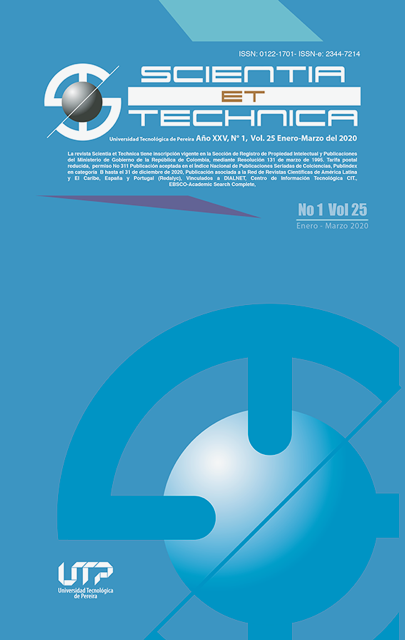Analysis of performance of a converted electric vehicle
DOI:
https://doi.org/10.22517/23447214.21231Keywords:
Electrical vehicle, greenhouse effect, renewable energies, technological transformation., technological transformationAbstract
Colombia, like other developing countries has been incorporating different electrical vehicles to the automotive national market. While the acquisition of a brand new electric vehicle is still expensive, transformation from used traditional vehicles (combustion) to electrical vehicles has become an interesting economical option. This work presents a performance evaluation of a transformed vehicle from its combustion version. The theoretical and experimental analysis (in rugged geographical reliefs such as Colombia) are necessary to consolidate the validity of this type of proposals at technical, economic and environmental impact levels. The procedure of an electric conversion presented herein showed significant mitigation of greenhouse gases owing to the renunciation of 6,54 L per 100 km and hence avoiding CO emissions: 1,808 g/km and THC + NOx: 0,652 g/km. The procedure included selection of both suitable car (low weight) and electric conversion kit, as well as assembly design, disassembly of combustion system, implementation of electric components. Additionally, experimental tests were performed to determine the behavior with respect to power under some load demands validating the proposed traction model.
Downloads
Downloads
-
Vistas(Views): 513
- PDF Descargas(Downloads): 481
Published
How to Cite
Issue
Section
License
Copyrights
The journal is free open access. The papers are published under the Creative Commons Attribution / Attribution-NonCommercial-NoDerivatives 4.0 International - CC BY-NC-ND 4.0 license. For this reason, the author or authors of a manuscript accepted for publication will yield all the economic rights to the Universidad Tecnológica of Pereira free of charge, taking into account the following:
In the event that the submitted manuscript is accepted for publication, the authors must grant permission to the journal, in unlimited time, to reproduce, to edit, distribute, exhibit and publish anywhere, either by means printed, electronic, databases, repositories, optical discs, Internet or any other required medium. In all cases, the journal preserves the obligation to respect, the moral rights of the authors, contained in article 30 of Law 23 of 1982 of the Government Colombian.
The transferors using ASSIGNMENT OF PATRIMONIAL RIGHTS letter declare that all the material that is part of the article is entirely free of copyright. Therefore, the authors are responsible for any litigation or related claim to intellectual property rights. They exonerate of all responsibility to the Universidad Tecnológica of Pereira (publishing entity) and the Scientia et Technica journal. Likewise, the authors accept that the work presented will be distributed in free open access, safeguarding copyright under the Creative Commons Attribution / Recognition-NonCommercial-NoDerivatives 4.0 International - https://creativecommons.org/licenses/by-nc-nd/4.0/deed.es license.



